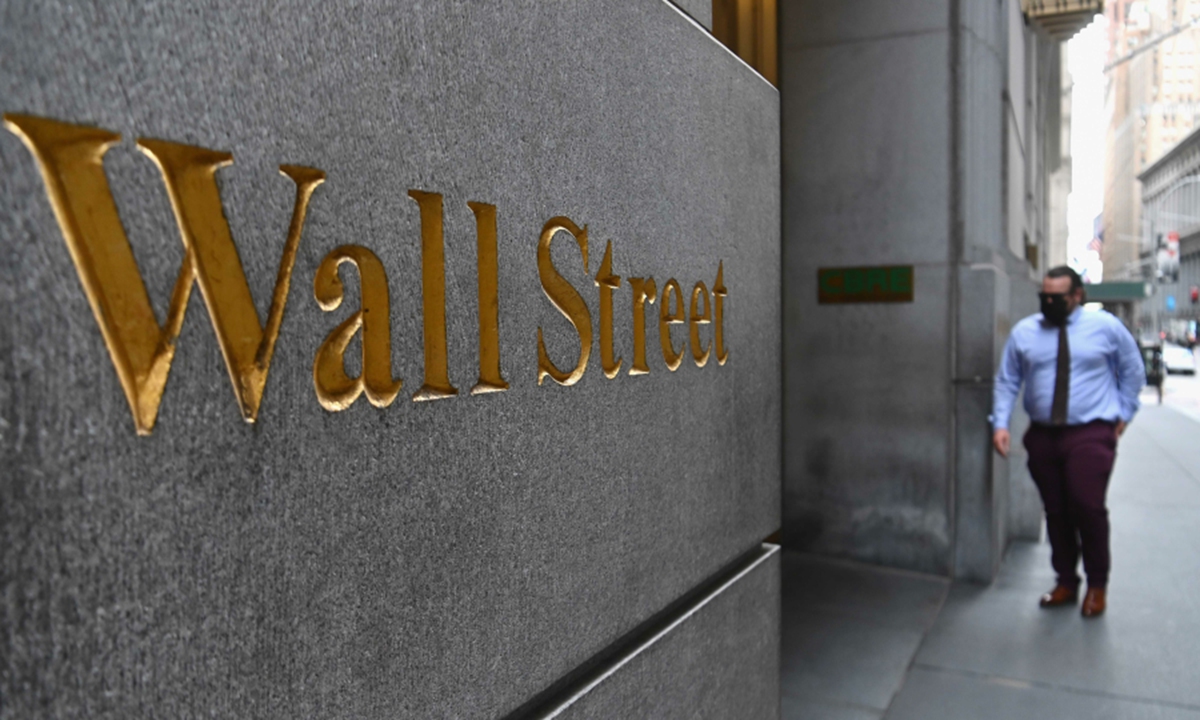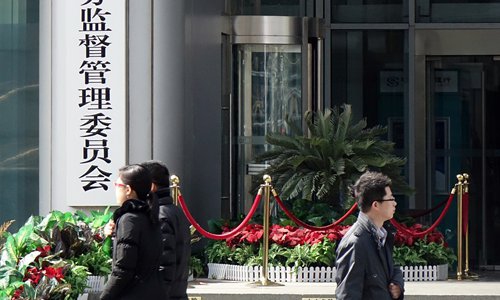SOURCE / INDUSTRIES
Wall Street finance firms looking for more not less in China: expert

A man walks near the New York Stock Exchange (NYSE) on August 31, 2020 at Wall Street in New York City.Photo: CFP
The likelihood of a financial decoupling between China and the US - a widely floated idea in Washington - isn't taking hold on Wall Street as more financial institutions from the US and other countries look to expand their presence in an increasingly open Chinese financial sector, a prominent Chinese financial expert said on Tuesday.
While some US politicians might be pushing for a financial decoupling between China and the US, which would be a very long and costly process, US financial institutions appear to be looking for more not less opportunities in China, Ben Shengli, president of the Beijing-based Frontier Institute of Regulation and Supervision Technology, told the Global Times in an interview.
"Major international financial corporations like Credit Suisse, UBS and Goldman Sachs are looking for bigger opportunities, under China's policy to continuously open the financial sector. From this standpoint, what Wall Street thinks and what some so-called US politicians think are different," said Ben, who previously worked for JP Morgan Chase and several other global financial firms.
Under President Donald Trump, the US government has launched a multifaceted campaign against China in trade, technology and financial sectors, in what some US officials claim to be efforts to decouple from China. As recent as Monday, Trump again threatened to "decouple" the US economy from China.
In the financial sector, US officials have also threatened to kick out Chinese companies listed in US markets. There have also been talk of the US weaponizing its financial hegemony to hit China's banks or even trying to push China off the SWIFT global payment system.
But it would be a very complex and long process and the two countries will likely find better rules to get along with each other, and if the US insists on pursuing a decoupling, its dollar's global dominance will be hugely and negatively impacted, Ben said.
"Even if the US wants to take some actions in the financial area, it must also properly assess the situation," he said, adding that China holds more than a trillion dollars in US Treasury bonds, which has an important role in the US economy.
"Personally, I don't think there will be a financial decoupling," Ben said. However, he warned that from a national security standpoint, China must also be prepared for a scenario where that might happen.
"National security must be protected in the financial area. This does not mean [decoupling] will happen, but every country must be prepared in this regard," he said.
In the wake of decoupling threats, China has continued to push forward reform and opening-up measures to boost its domestic financial market, in line with its long-stated goals. Among a flurry of reform and opening-up measures, China adopted in late August new listings rules for its startup board, the ChiNext board in Shenzhen, which experts say could make the market attractive for domestic companies, including those already listed in the US.
China has also continued to expand market access for foreign financial companies. Chen Yulu, deputy governor of People's Bank of China, the central bank, said during a forum on Sunday that a negative list in the financial sector that put some areas off limits to foreign firms has been cleared.
Global Times


